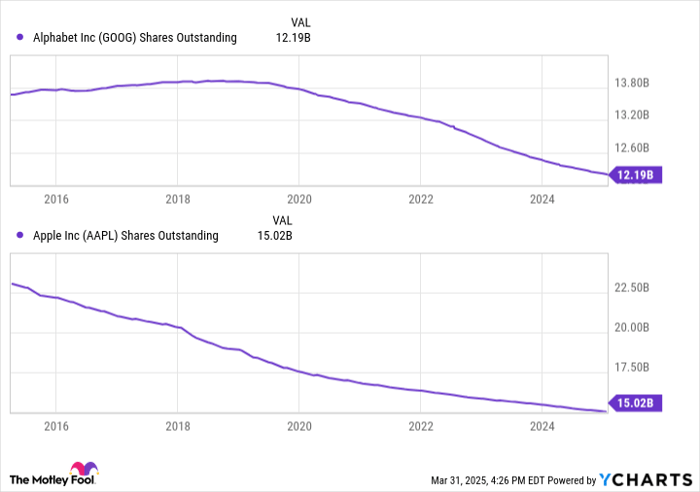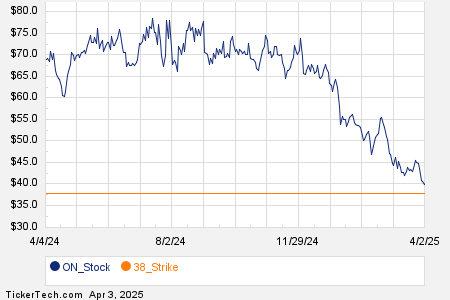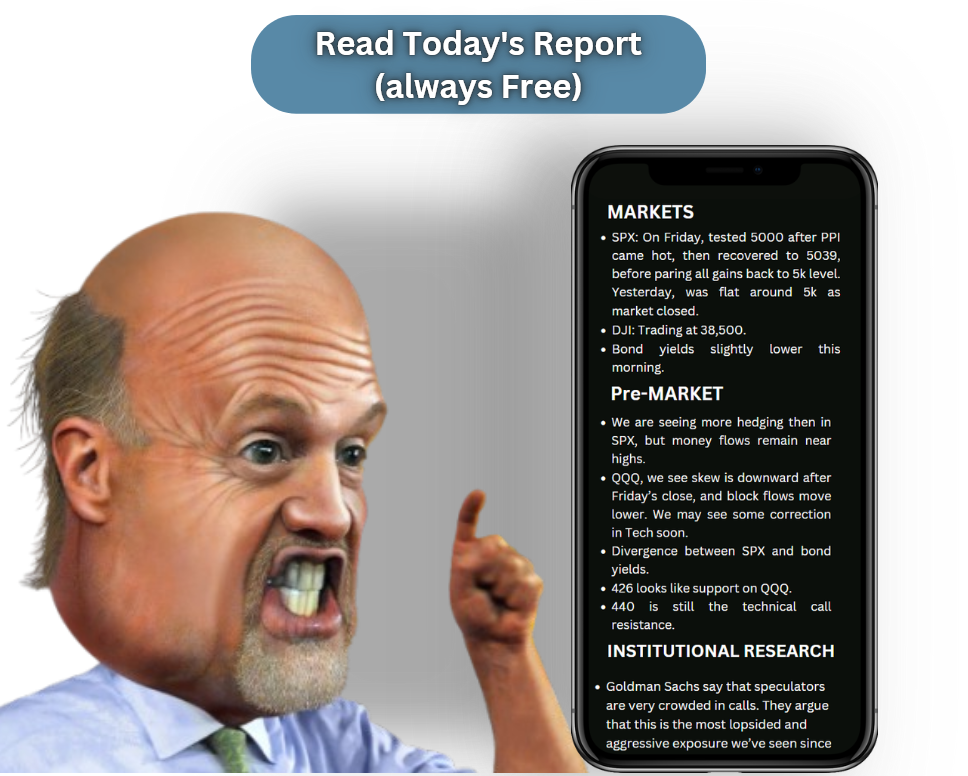How Alphabet’s Stock Buyback Strategy Boosts Shareholder Value
How does a company deliver consistent value to its shareholders? While many would agree that growth is the key, there are additional strategies at play. One effective method is reducing the number of outstanding shares, which enhances the value of remaining shares through scarcity. For some firms, such as Alphabet, stock buybacks significantly contribute to net gains.
Where to invest $1,000 right now? Our analyst team just revealed what they believe are the 10 best stocks to buy right now. Learn More »
Interestingly, this approach is not limited to traditional value stocks known for share repurchases. Several technology companies are engaging in similar practices, demonstrating how effective this strategy can be. One notable example is Google’s parent company, Alphabet (NASDAQ: GOOG) (NASDAQ: GOOGL). Let’s examine how Alphabet’s stock buyback strategy has contributed to shareholder value.
What is a Stock Buyback?
Stock buybacks are straightforward: instead of issuing more shares to raise capital—thereby diluting existing shareholders—companies can choose to buy back their own stock from the market. This process uses the company’s cash to repurchase shares, which can either be held as assets, given to employees as compensation, or permanently retired, thereby reducing the total number of shares outstanding.
This reduction leads to an increase in per-share earnings, as profits are split among fewer shares, which also raises the potential for dividend payouts. It’s a discretionary strategy, meaning that while some companies may regularly engage in buybacks, others might never do so.
Companies that are consistently profitable are more likely to maintain robust stock buyback programs.
Apple vs. Alphabet: Leaders in Stock Buybacks
In this context, it’s noteworthy that Apple (NASDAQ: AAPL) led the market in share repurchases during the first three quarters of last year, spending over $77 billion on buybacks. This comes as no surprise, as Apple is recognized as one of the largest and most profitable companies worldwide. However, Alphabet also made a significant mark in the technology sector, investing nearly $47 billion in its own stock within the same period, which is impressive given its market capitalization of $1.9 trillion.
The proportional commitment to buybacks indicates that Alphabet is matching Apple’s pace in returning capital to shareholders, despite their differing sizes.
Alphabet successfully reduced its outstanding share count from over 12.6 billion at the end of 2023 to less than 12.4 billion by year-end 2024. Although this represents a modest 2% decrease, it effectively enhances the value of remaining shares by the same percentage and reflects Alphabet’s ongoing commitment to repurchase shares since 2019. While Apple’s buybacks seem to have slowed, Alphabet’s activity remains strong.

Data by YCharts.
Evaluating Reasons to Invest in Alphabet
Stock buybacks are certainly not the sole consideration for investing in a company. Ideally, firms should demonstrate consistent growth in both revenue and profits to remain competitive. A lack of buybacks shouldn’t deter investors from engaging with a company. Nonetheless, generous stock repurchase programs do reinforce a company’s confidence in its future, enhancing the overall investment case.
For potential investors, Alphabet presents an attractive opportunity, not just due to its stock repurchase initiative but also as one of the leading names in technology for buybacks.
Seize This Opportunity
Have you ever felt you missed your chance to invest in top-performing stocks? Now may be the time to act.
Our expert analysts occasionally issue a strong recommendation—“Double Down” on stocks they believe are primed to surge. If you think you’ve already missed out, now presents a compelling opportunity to invest based on promising data:
- Nvidia: Invested $1,000 when we doubled down in 2009 would now be worth $285,647!*
- Apple: A $1,000 investment from 2008 would have grown to $42,315!*
- Netflix: A $1,000 double down investment in 2004 would have skyrocketed to $500,667!*
Currently, we are recommending “Double Down” alerts for three remarkable companies, with limited chances remaining.
Continue »
*Stock Advisor returns as of April 1, 2025
Suzanne Frey, an executive at Alphabet, is a member of The Motley Fool’s board of directors. James Brumley has positions in Alphabet. The Motley Fool has positions in and recommends Alphabet and Apple. The Motley Fool has a disclosure policy.
The views and opinions expressed herein are those of the author and do not necessarily reflect those of Nasdaq, Inc.


